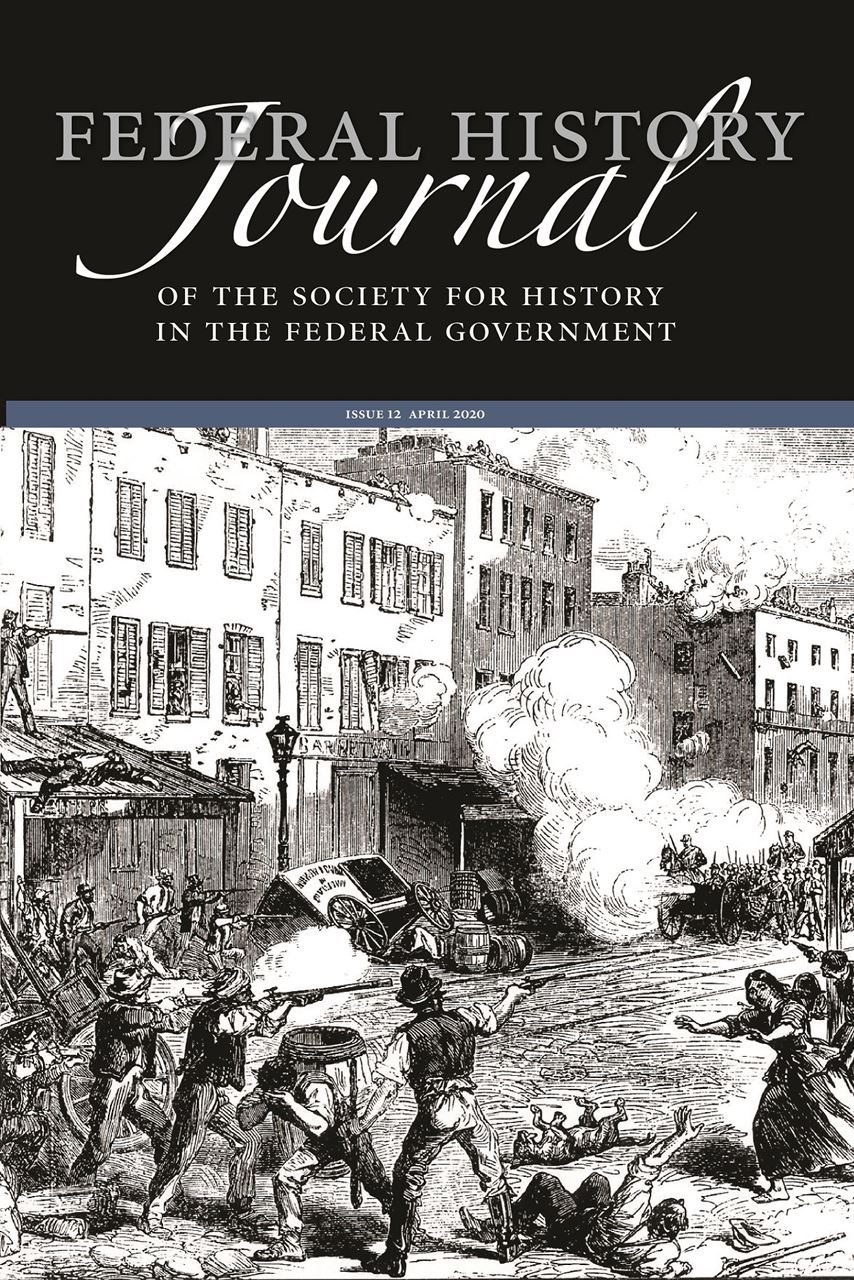|
Cover: A scene from the New York City draft riots in July 1863 (Illustrated London News). The violent outbreak reflected the building “clash between national policy and local sentiment,” particularly regarding arrests and law enforcement. See the story on page 9. |
|
ContentsEditor’s Note
— Benjamin GutermanRoger R. Trask Lecture
For the Records
— Marian Smith
Articles
Federal-Local Collaboration in Law Enforcement During the Civil War
— Wyatt EvansThe USB Maine Conspiracy
— Kenneth C. WenzerResearch and Resources
Technodiplomacy: A Concept and Its Application to U.S.-France Nuclear Weapons Cooperation in the Nixon-Kissinger Era
— John KrigeInterview
An Interview with Daniel Immerwahr
— Alexander Poster
Henry Clay: The Man Who Would Be President
By James Klotter— Reviewed by Harry L. Watson
The Impeachers: The Trial of Andrew Johnson and the Dream of a Just Nation
By Brenda Wineapple— Reviewed by Daniel S. Holt
Digitized Collection of the Territorial Papers of the United States, 1764-1953
By United States Government and Readex— Reviewed by Christopher R. Eck
The Mayaguez Crisis: Mission Command and Civil-Military Relations
By Christopher J. Lamb— Reviewed by Fred H. Allison
Federal History features scholarship on all aspects of the history and operations of the federal government, and of critical historical interactions between American society and the government, including the U.S. military, 1776 to the present. It also publishes articles examining contemporary issues and challenges in federal history work. The journal highlights the research of historians working in or for federal agencies, academic historians, and independent scholars.
For submissions or inquiries, e-mail the Federal History editors at federalhistory@gmail.com
ISSN 2163-8144 (print)
ISSN 1943–8036 (online)

